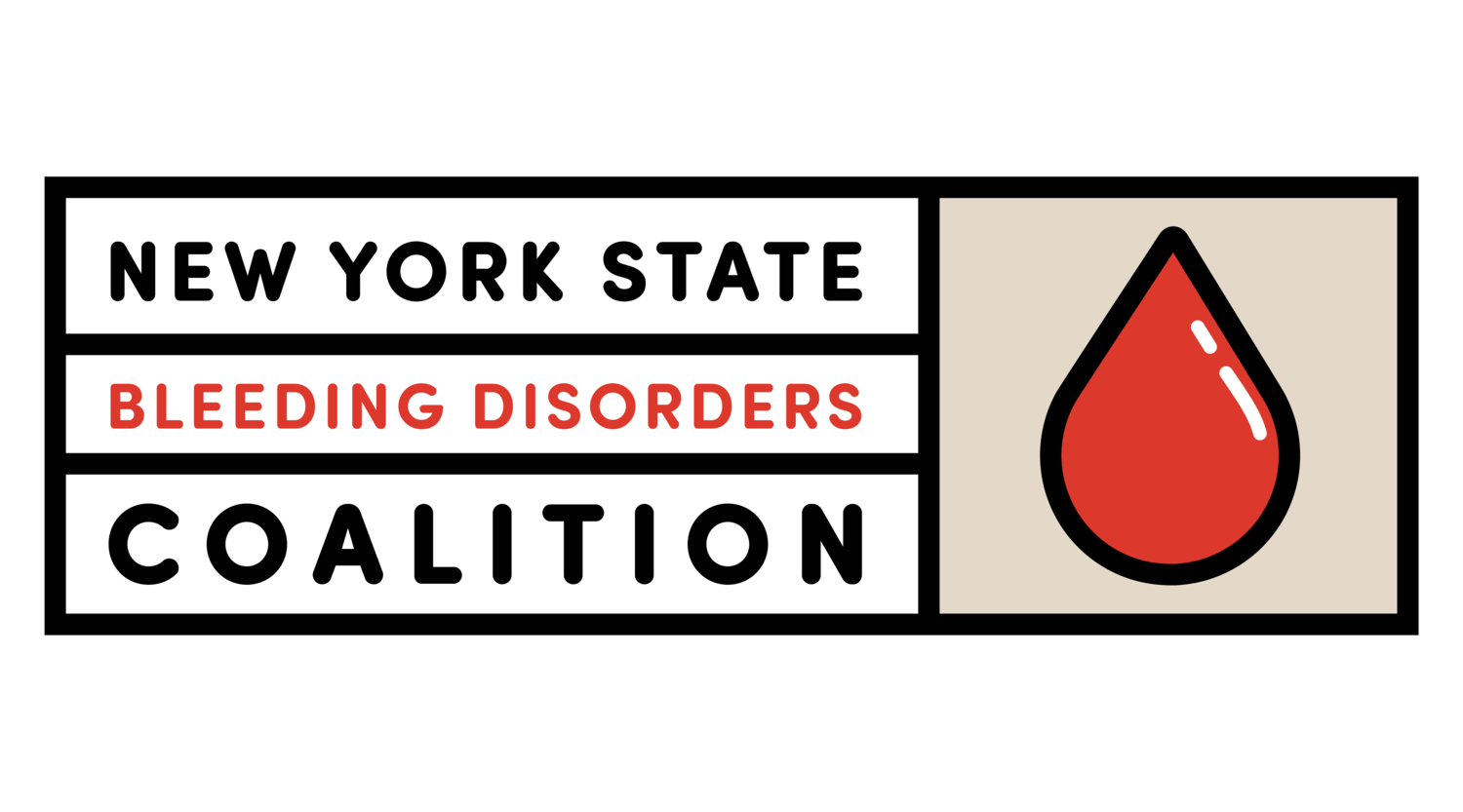Hemophilia Treatment Centers
Comprehensive Care in New York State
A model of excellence for the bleeding disorder population
Hemophilia Treatment Centers (HTCs): Critical to Caring for Bleeding Disorder Patients
Much like the Health Home model, Hemophilia Treatment Centers (HTCs) provide coordination of care for the bleeding disorder population.
A Health Home, as defined by the New York State Department of Health, is a “care management service model whereby all of an individual's caregivers communicate with one another so that all of a patient's needs are addressed in a comprehensive manner.” This concept focuses on a team-based health care delivery model that is intended to provide comprehensive and continuous medical care to patients to maximize health outcomes and control future health care costs.
HTCs effectively accomplish this goal. A CDC study of 3,000 people with Hemophilia confirmed that those treated within an HTC care model were 40% less likely to be hospitalized for bleeding complications. The HTCs submit important data that researchers and scientists specializing in rare disorders can access. The data is used to advance knowledge that will eventually impact the health practices used to care for all patients with bleeding disorders.
In addition, HTCs have been recognized for their comprehensive care model and as such are federally funded by the Health Resources and Services Administration’s Maternal and Child Health Bureau. This funding renders the HTCs eligible to become 340B covered entities.
Although new studies show medical care, treatment, and support services for bleeding disorders have improved over the past 50 years, there are many health challenges that remain.
Bleeding Disorders
Bleeding disorders can be inherited or can be diagnosed without reporting a prior family history. According to the CDC, Von Willebrand Disease occurs in 1% of the population, affecting both males and females and Hemophilia is estimated as occurring in one of every five thousand male births.
Bleeding disorders are complex and occur when the blood does not clot properly. The severity of a bleeding disorder varies among patients and is determined by the amount of factor in the blood; the lower the factor, the more likely it is that bleeding will occur.
Bleeding Disorders can result in:
Bleeding within joints (spontaneous or due to trauma) that can lead to chronic joint disease and pain which can result in limited mobility and the necessity for additional medical care, joint replacements, etc.
Bleeding in the head and sometimes in the brain (spontaneous or due to trauma) which can cause long term problems, such as seizures and paralysis.
HTCs offer a comprehensive care model that provides access to the following multidisciplinary clinicians:
Physicians specializing in hematology (a branch of medicine focused on the study, diagnosis, treatment, and prevention of diseases related to blood)
Lab medical technologists and pathologists
Orthopedists
Nurses
Social Workers and Mental Health Professionals
Physical Therapists
By referral, other specialists are available such as dentists, nurses, genetic counselors and nutritionists
There are 130 HTCs nationally that meet the criteria established as covered entities under the 340B program. These HTCs are federally funded and supported by the CDC. New York State has eight (8) centers (listed below) that treat over 3,000 individuals with bleeding disorders, including women with bleeding related complications and others seeking specialized care for their bleeding disorder.
NY-Presbyterian/Weill Medical College Comprehensive Center for Hemophilia & Coagulation Disorders (New York City)
Regional Comprehensive Hemophilia Diagnostic and Treatment Centers at Mount Sinai Medical Center (New York City)
Northwell Health (Formerly North Shore-LIJ Health System) Hemophilia Treatment Center (Long Island)
The Hemophilia Treatment Center @Montefiore Medical Center (Bronx)
Albany Regional Comprehensive Center for Hemophilia & von Willebrand Disease (Albany)
Mary M. Gooley Hemophilia Center (Rochester)
Upstate Cancer Center – Adult Hematology/Oncology (Syracuse)
Western NY Blood Care (Buffalo)
Federal funding for centers has decreased over the past several years. Without the support of the 340B program savings, the HTCs would not have sufficient funding to offer all the services needed to qualify as covered entities and would, therefore, be unable to provide the comprehensive care this population needs by the specialists trained to treat these disorders. Without support, this special needs population would be at risk and quality health outcomes will be compromised.
The Coalition urges New York State to continue to support the 340B program enabling the above HTCs to continue their care and much needed management of this population. As demonstrated by CDC studies, care provided by HTCs results in improved health outcomes and lower medical costs.
